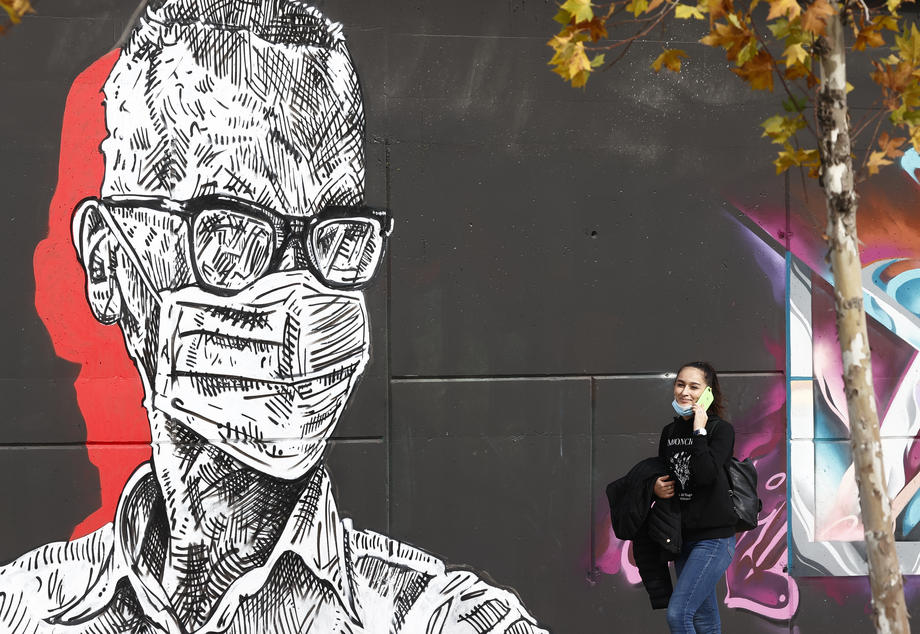

A government decision has allowed gyms, shopping centres and gastronomic businesses to reopen after the recent shutdown with the number of active coronavirus cases standing at over 12,000.
After being ordered to close for 11 days between April 7-18, shopping centres, indoor gyms and gastronomic businesses, including bars, cafes and restaurants, were allowed to reopen on Monday.
Gyms and gastronomic businesses, however, will now operate under new restrictions in place to prevent the spread of COVID-19.
At gyms and fitness centres, a maximum capacity of one client per eight square metres will be in force, with business owners required to ensure that a safe distance is maintained, especially at peak times.
A maximum capacity will also be applied to gastronomic businesses based on the size of the area in which food and drinks are served, with 40 customers permitted per 100 square metres (or four customers per 10 square metres). Customers must be seated at tables at least one metre apart and are obliged to remain seated unless entering, leaving, paying or visiting the toilet.
Other measures applied on April 7 were also relaxed, with many schools and universities resuming teaching in person on Monday, after education had moved online for older schoolchildren and university students in recent weeks.
At the borders, Kosovo citizens are no longer required to provide a negative PCR test on re-entering the country after leaving for more than 24 hours. However, other border restrictions are still in force, with citizens from countries designated as high risk by the European Centre for Disease Prevention and Control requiring a negative PCR test less than 72 hours old.
The night time curfew also remains in force but has been pushed back by 30 minutes, now applying between 22:30 and 05:00.
All but essential workers are still obligated to work from home. However, the number of people permitted at gatherings such as seminars, meetings or training sessions has been increased from 10 to 30.
Cultural institutions operated by the Ministry of Culture, Youth and Sport are also permitted to continue activities with attendance at 30 percent capacity, increased from 20 percent.
Speaking to Prishtina Insight, Hana Xhemajli, an independent researcher on health policies, described the new measures to contain the spread of the novel coronavirus as “minimal.”
The Association of Kosovo Gastronomers reacted angrily to suggestions that cafes and restaurants were the main source of infection and promised protests if the closure did not end on Sunday.
According to Xhemajli the new measures were developed jointly between the Kosovo Government and the Association, and she told Prishtina Insight that she hopes business owners demonstrate responsibility and strictly adhere to the new measures.
“If there is no societal responsibility, it is futile to introduce any kind of measures,” Xhemajli said. “I hope for the rules to be fully respected, otherwise two weeks later we might see further measures being introduced.”
The researcher added that without securing vaccinations, measures remain the only way to contain the number of cases. “Until we are vaccinated against COVID-19, this will be our reality in Kosovo,” she said. “This is our joint fight and we should all face it together.”
The number of active cases in Kosovo dropped by more than 1,500 during the recent shutdown. On April 6, the number of active coronavirus cases stood at 14,020 according to the National Institute of Public Health, NIPH. On Sunday, that number had dropped to 12,433.
According to data from the NIPH, over 100,000 people have tested positive for the coronavirus in Kosovo since the first cases were recorded in March 2020, more than 2,000 of whom have died.
19 April 2021 - 10:26

COVID-19 cases in Kosovo have soared from 30-40 per day last week to m...

The number of active coronavirus cases in Kosovo fell to 733 on Thursd...

The Kosovo Government has relaxed a number of restrictions on public a...

Kosovo has administered the vast majority of the 24,000 doses of the A...